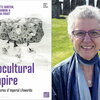
Modern British History has had a long and distinguished career at the University of Illinois, sustained by the ongoing, if changing, significance of Britain and its empire to world history and contemporary political, social and cultural questions. Scholarship in British history is more robust than ever, drawing on methodological approaches from colonial studies, postcolonial theory and women's, feminist, legal and cultural history.
The British History field at Illinois, "Britain and the Empire-Commonwealth from 1688," takes these new approaches into account without sacrificing attention to either empirical research or those "national" narratives which continue to have relevance even as globalization has become the watchword of the present generation. Thus, students who specialize in Modern Britain are encouraged to ground themselves in both the political trajectories and the cultural politics of the imperial nation state from its seventeenth century origins through decolonization. Particular attention is paid to the British empire in India and Africa, to the impact of imperialism on metropolitan society in the nineteenth century and to decolonization and its reverberations. The relationship of Britain to Europe, especially through imperial concerns and contemporary issues like Brexit, is an integral part of the graduate program in the field. We encourage and support comparative and interdisciplinary approaches as well. Gender and sexuality are considered critical analytical tools for historical thinking, and their intersection with race, class, religion, and nation are treated as equally crucial for understanding modernity and related subjects in the British/imperial context. The department's growing interest in transnational and global perspectives articulated through courses that interrogate the nation and offer models of non-national investigative methods means that students who come to study "Britain" will have the opportunity to be trained in a variety of conceptual and methodological approaches. Courses offered focus on Victorian Politics and Imperial Culture, Subaltern Studies and Postcolonial Theory, Britain in the Global Eighteenth Century, British Science and Medicine in International Context, and Gender and Colonialism Perspective. Graduate students specializing in Modern Britain are expected to do archival research in the United Kingdom and relevant colonial archives and are encouraged to gain teaching experience in both national and comparative/transnational history.
Other Resources
Related Faculty in Other Departments
History Faculty working in Britain and British Empire












Related News

Professor Antoinette Burton receives Distinguished Award for Excellence in Public Engagement

Professor Antoinette Burton elected to American Academy of Arts and Sciences

New anthology questions supremacy of humans in empire history: Q&A with co-editor Antoinette Burton
